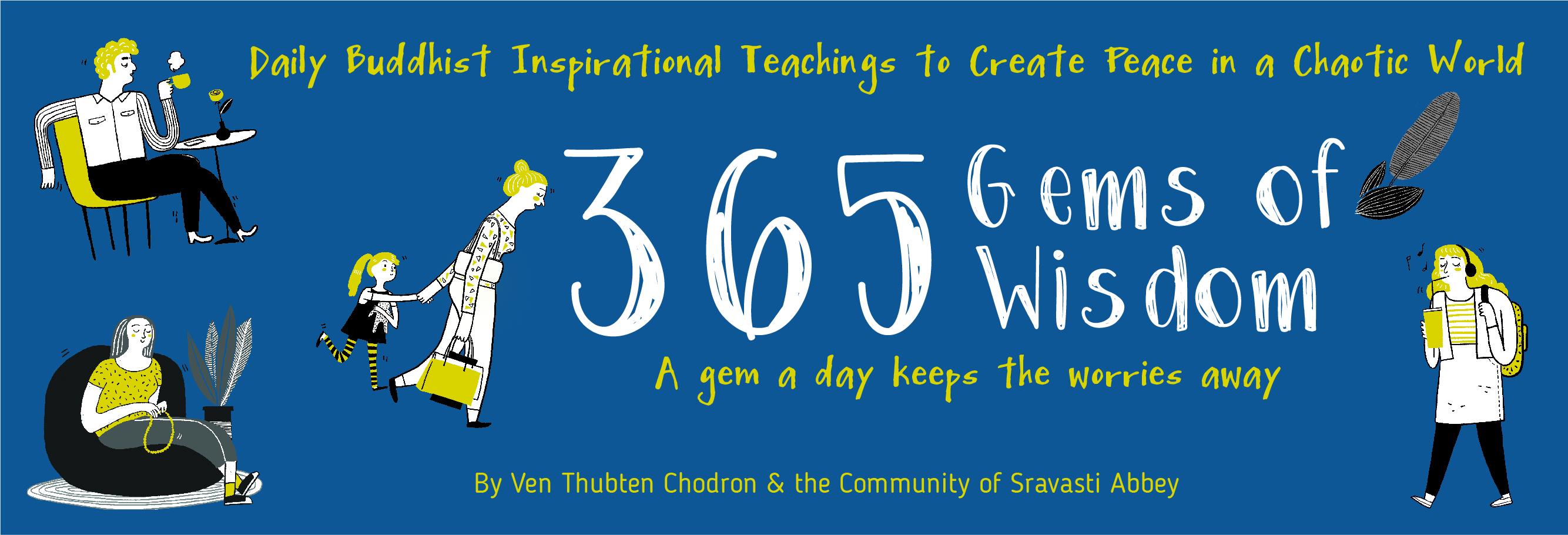October 2 : Apologising
One thing that frequently comes to the mind is relationships and how we have treated people in the past. You do not need to provoke it; it comes up by itself. Do not dwell on it, but when you see that you have acted in an inappropriate way to somebody, purify your attitude, generate a feeling of love and compassion towards him, and apologise to him. If you can, write to him, or when you see this happen, call and talk to him. If you cannot, at least apologise in your mind. With people, if they are still alive and we make an effort to apologise to them, it relieves our minds and enables us to open our hearts to them instead of remaining proudly defiant with our heels dug in about how we were right and they were wrong. It banishes that obstructive mind.
From the other person’s point of view, he may or may not be hurt, and he may or may not be angry. We do not know, but if our last communication with him was something hostile, or if there was a pattern of repeated hostility (even if the last communication was not hostile), then the next time when we see that person, he may still have that in mind and he is probably going to relate to us in a particular way. If we do not want that person to relate to us in that way, then it is good to let him know that our attitude has changed.
If somebody is very antagonistic to you, how do you usually relate to that person? Often, we just stay away from him. Similarly, if we relate that way to somebody else, then he will think, “Whoa, somebody is really mad at me, I had better stay clear.” Yet, if our mind changes and we do not let him know that our mind has changed, he will continue to relate to us as though we were angry with him. Whereas, if we apologise and let him know that our mind has changed; he would not be relating to us as if we were still angry with him when he relates to us in the future. This makes a big difference in our relationships with people. It makes a difference in how other people feel inside. Sometimes, somebody may be hurt or may be angry. If we apologise, it gives him the space to let go. No matter what he feels, it alleviates our minds from the pain of holding on to a grudge.
This comes up in retreat, and it comes up in ordinary life. It is something to bear in mind so that we can counteract that tendency to say, “Even if I was angry, even if I told them off and I was rude, they should know I did not mean it and forgive me.” or “I do not need to apologise as I reacted that way because it was really their fault,” which is just tremendous arrogance. Keep that in mind, let our mind soften, and let our speech and our actions reflect that.
“365 Gems of Wisdom” e-book is out now!

